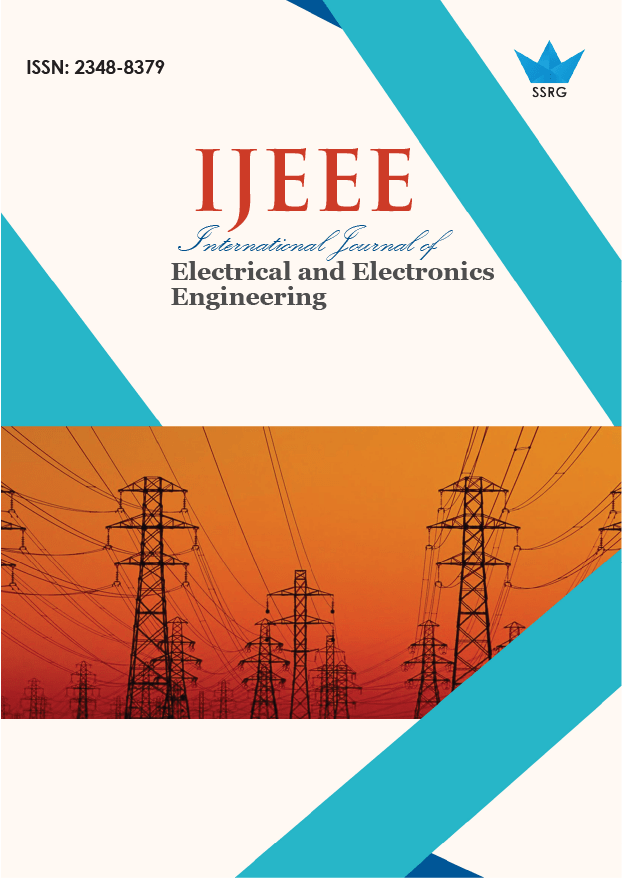Cost Optimization of PV-Wind- Battery-Grid Connected hybrid system

| International Journal of Electrical and Electronics Engineering |
| © 2016 by SSRG - IJEEE Journal |
| Volume 3 Issue 2 |
| Year of Publication : 2016 |
| Authors : Karuna Nikum, Rakesh Saxena, Abhay wagh |
How to Cite?
Karuna Nikum, Rakesh Saxena, Abhay wagh, "Cost Optimization of PV-Wind- Battery-Grid Connected hybrid system," SSRG International Journal of Electrical and Electronics Engineering, vol. 3, no. 2, pp. 20-25, 2016. Crossref, https://doi.org/10.14445/23488379/IJEEE-V3I2P105 pdf Citation:
Abstract:
This paper presents details of the technical and economic analysis of hybrid power system with cost minimization. The renewable sources, wind and solar energy are connected with different types of backup and are then compared for their economic feasibility. Here battery, grid & diesel generator are used as a backup with renewable energy sources. Removing the battery reduces the cost of energy and net present cost. Presence of diesel generator increases the fuel cost, transportation cost and gas emission. The grid plays an important role of power backup component in the hybrid system, when the renewable energy resources are not enough to meet the load. The data used for the assessment is calculated by HOMER for the location of Mumbai, Maharashtra. This assessment criteria explain the cost with highest renewable fraction to reduce the emission and fulfil the load demand significantly.
Keywords:
Economic Analysis, Renewable sources and HOMER.
References:
[1] V.K. Soni, R. Khare, “Optimal sizing of HRES for small sized institute using HOMER,IEEE 2nd International Conference on Electrical Energy Systems, pp. 77-81,ICEES,-2014.
[2] Shekhar K Pawar, Yogesh Aaher, Ajit C. Chaudhari, Yogesh Jhadhav, “Modeling and simulation of hybrid solar wind grid power generation system for electrification”, IEEE international conference on advances in engineering and technology, pp.1- 6,ICAET 2014.
[3] Prasenjit Mazumder, Md. Haibul Jamil, C.K. Das, M.A. Matin, “Hybrid energy optimization: an ultimate solution to the power crises of st. Martin Island”, Banglades‟, 9th IEEEInternational forum on strategic technology, pp. 363-368, 21-23 oct, 2014.
[4] Bidisha Roy, Ashok Kumar Basu, Subrata Paul, “Techno- Economic feasibility analysis of a grid connected solar photovoltaic power system for a residential load”,pp. 1-5, 2014.
[5] R.N.S.R Mukhtaruddin, H.A. Rahman, H.A. Hassan, “Economic analysis of grid-connected hybrid photovoltaic-eind system in Malaysia”, pp. 577-582, 2013.
[6] K. Balachander, S. Kuppusamy, P.Vijayakumar.: “Comparative study of hybrid photovoltaic-fuel cell system/ hybrid wind-fuel cell system for smart grid distributed generation system”, IEEE International conference on emerging trends in science, engineering and technology, pp. 462-466, 2012.
[7] Md. Moniruzzaman., Sami ul Hasan, “Cost analysis of PV/wind/diesel/grid connected hybrid system”, IEEE International conference on informatics, Electronics and vision -ICIEV, pp. 727- 730, 2012.
[8] Rashayi Emanuael, chikuni Edward, “The potential of grid connected photovoltaic arrays in zimbabwe”, pp. 285-288, 2012.
[9] Khurshid Hasan, Fatima Kaniz., Md. Sohel mahmood, “Feasibility of Hybrid Power Generation over Wind and Solar Standalone System”, 5th International Power Engineering and Optimization Conference (PEOCO2011), Malaysia : pp.1-7,6-7 June, 2012.
[10] Vuc Gheorghe, Borlea Ioan., Constantin Barbulescu., Octavian Prostean, “Optimal energy mix for a grid connected hybrid wind- Photovoltaic generation system”, pp. 129-132, 2011.
[11]Aktabujjaman, S. Islam, and M. A. Ullah, “Efficient power system with existing power system”, IJEEE, Vol. 3, No. 5, October 2015.

 10.14445/23488379/IJEEE-V3I2P105 pdf Citation:
10.14445/23488379/IJEEE-V3I2P105 pdf Citation: